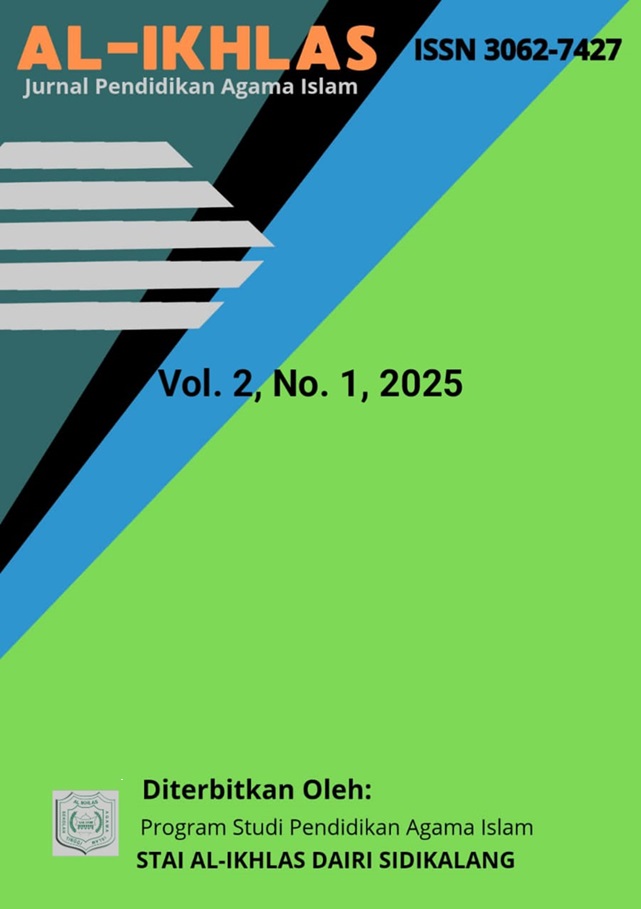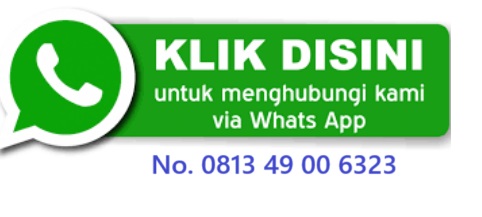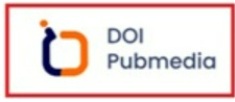Asesmen Formatif pada Mata Pelajaran PAI dan Budi Pekerti di SMK Al-Munawarroh Cilacap
Keywords:
Asesmen Formatif, Tahapan Asesmen Formatif, Bentuk Asesmen Formatif, Mata Pelajaran PAI BPAbstract
Formative assessment plays a crucial role in learning because it functions as an assessment to monitor and improve learning. The PAI BP material aims to realize the values of Islam rahmatan lil’alamin in the learning process, and the achievement of this goal is carried out through a process known as formative assessment, which plays a supportive role in that process. Therefore, formative assessment is necessary to meet the learning needs of students and to understand the level of student development in the learning process, which does not solely focus on the final outcome. Thus, the implementation of formative assessment in the PAI BP subject is very necessary. This study aims to describe the implementation of formative assessment in the PAI BP subject at SMK Al-Munawarroh Cilacap. This research is a type of field study using a descriptive qualitative approach with data collection techniques through interviews, documentation gathering, and triangulation. This formative assessment research is focused on the X Accounting and X TKJ classes at SMK Al-Munawarroh Cilacap. Meanwhile, the data analysis techniques used are data reduction, data presentation, and conclusion drawing. The results of this study are: the implementation of formative assessment in the PAI BP subject at SMK Al-Munawarroh Cilacap is carried out in each chapter with several stages, namely the planning stage, implementation, and follow-up or feedback. In each of these stages, a variety of techniques were used in the form of assessments, namely observation, memorization, oral exams, practice, and product presentations.
Downloads
References
Anggraena, Y., Ginanto, D., Felicia, N., Andianti, A., Herutama, I., Alhapip, L., Iswoyo, S., Hartini, Y., & Mahardika, R. L. (2022). Panduan Pembelajaran dan Asesmen Pendidikan Anak Usia Dini, Pendidikan Dasar, dan Menengah. Badan Standar, Kurikulum, Dan Asesmen Pendidikan Kementrian Pendidikan, Kebudayaan, Riset, Dan Teknologi Republik Indonesia.
Firman, W., & Anhusadar, L. (2022). Peran Guru dalam Menstimulasi Kemampuan Kognitif Anak Usia Dini. Kiddo: Jurnal Pendidikan Islam Anak Usia Dini, 3(2), 28. https://doi.org/10.19105/kiddo.v3i2.6721
Hardani, Andriani, H., Ustiawaty, J., Utami, E. F., Istiqomah, R. R., Fardani, R. A., Sukmana, D. J., & Auliya, N. H. (2023). Metode Penelitian Kualitatif dan Kuantitaif. CV. Pustaka Ilmu Grup.
Ramadhani, D. P., Nurhaliza, P., Mufit, F., & Festiyed. (2021). Analisis Penerapan Asesmen Formatif dalam Pembelajaran IPA dan Fisika : Literature Review. Lensa: Jurnal Pendidikan IPA, 11(2), 111. https://doi.org/10.24929/lensa.v11i2.172
Sabilah, G. A., & Asrining, T. P. (2022). The Importance of Formative Assessment Based On Students’ Perpection. Jurnal Konseling Dan Pendidikan, 10(2), 107–120. https://doi.org/10.29210/127900
Solamo, F. S. D. (2022). One-Minute Paper (OMP) as a Formative Assessment. Indonesian Journal Of Educational Research and Review, 5(2), 327–334. https://doi.org/10.23887/ijerr.v5i2.48248
Sufyadi, S., Lambas, Rosdiana, T., Rochim, F. A. N., Novrika, S., Iswoyo, S., Hartini, Y., Primadonna, M., & Mahardika, R. L. (2021). Panduan Pembelajaran dan Asesmen Jenjang Pendidikan Dasar dan Mnenengah (SD/MI, SMP/MTs, SMA/SMK/MA). Pusat Asesmen Dan Pembelajaran Badan Penelitian Dan Pengembangan Dan Perbukuan Kementerian Pendidikan, Kebudayaan, Riset, Dan Teknologi.
Sugiyono. (2015). Metode Penelitian Kuantitatif, Kualitatif, dan R&D. Alfabeta.
Taufik, A., & Setyowati, N. (2021). Buku Panduan Guru Pendidikan Agama Islam dan Budi Pekerti (1st ed.). Pusat Kurikulum dan Perbukuan Badan Penelitian dan Pengembangan dan Perbukuan Kementerian Pendidikan, Kebudayaan, Riset dan Teknologi.
Yeni, M., & Salim, H. (2023). Pembinaan Karakter Siswa Melalui Program Tadarus Al-Qur’an. Jurnal PAI Raden Fatah, 5(4), 771. https://doi.org/10.19109/pairf.v5i4

Downloads
Published
How to Cite
Issue
Section
License
Copyright (c) 2025 Fadilah Nasuhah, Rohmad

This work is licensed under a Creative Commons Attribution-NonCommercial-ShareAlike 4.0 International License.










